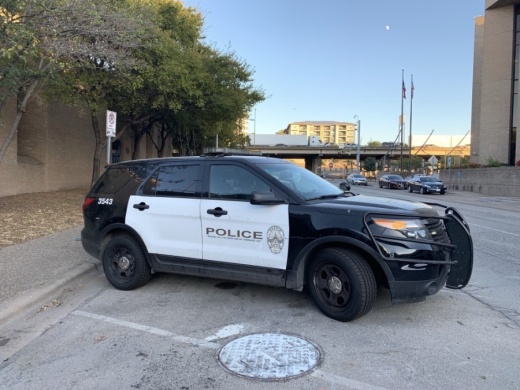Ever since Capital Metro's beginnings in the 1980s, the public transportation network has relied on off-duty Austin Police Department officers to handle security along the transit lines. That force started with four part-time officers in 1988. Now, approximately 160 off-duty officers work security for Capital Metro.
Population growth is not slowing down, and Capital Metro is eyeing a potential expansion of its network with light-rail lines and an underground rail station if voters approve Project Connect on Nov. 3. In that environment, continuing to bolster the ranks of part-time APD officers is not a permanent solution for public safety, according to Capital Metro Security Director Darryl Jamail.
Instead, Jamail said, the public transportation network needs its own police force. That force would include a chief who is able to hire a small number of sworn officers—those who are armed and able to make arrests—to handle the serious challenges that come with big city transportation. The force would also include a larger number of non-sworn, unarmed security officers who can respond to calls for issues that do not require armed police—fare evasion, for example, or a customer report of suspicious activity through Capital Metro's app. Off-duty APD officers respond to those calls now, but Capital Metro is looking at whether it can find a better option.
"Austin historically has doubled every 20 years. At this point, we need officers that are full-time employees, have institutional knowledge and can be here 40 hours a week," Jamail said.
According to a presentation Jamail gave to Capital Metro's operations, planning and safety committee July 15, building the Capital Metro police department would take place in phases over the next two years.
The process started this summer in the fiscal year 2020-21 budget process, which Capital Metro's board of directors is set to approve in September, with a $1.1 million reallocation that will allow the agency to begin hiring non-sworn public safety staff.
In 2021, Capital Metro would seek approval from the Texas Legislature to give its officers more authority to enforce the law anywhere along its public transit routes. Police officers do have the authority to enforce the law in any jurisdiction in Texas, but that power is limited, and Capital Metro would need to expand those abilities before bringing on additional staff.
Finally, in the FY 2021-22 budget, Capital Metro would look to hire its police chief and police officers. Jamail said the plan is to land somewhere between San Diego's model, which has one sworn officer, and Denver's, which has 15. The rest of the public safety officers would be non-sworn, and there would still be a presence of APD part-time officers, although that number would be significantly reduced.
After the deaths of George Floyd in Minneapolis and Michael Ramos in Austin in police custody, national and local conversations have taken place around the relationship between police officers and the communities they serve. Capital Metro's process is not a reaction to the protests that began this summer, Jamail said.
Rather, Jamail said, the challenge of how to make policing more effective by "not using police officers for every job that could be done by somebody else" is one that he said has been ongoing for decades in policing.
"There are a lot of functions with regards to security that don’t require the specialized training a police officer gets. Do you have to have a law-enforcement officer do this or could you have another employee do it?" Jamail said.
In August, Austin City Council made significant changes to APD's budget in FY 2020-21. Council cut about $20 million from the department by cancelling the next three cadet classes, among other measures, part of an overall reduction of roughly $150 million for the police budget in the fiscal year.
Those changes have not affected Capital Metro's ability to hire part-time officers, Jamail said. However, any time APD has to invest extra resources into its own patrol—to respond to local protests in June, for example—that reduces the number of off-duty cops who are available to work Capital Metro security shifts.
Capital Metro President and CEO Randy Clarke told the operations, planning and safety committee in July that through no fault of APD's, the public transit agency does not have the support it needs for its staff and customers.
"They are great men and women that come and help us when we need them; however, there’s an inconsistency issue we deal with, because they are not our staff, and they are police officers doing transit policing, transit public safety work as part-time," Clarke said.





